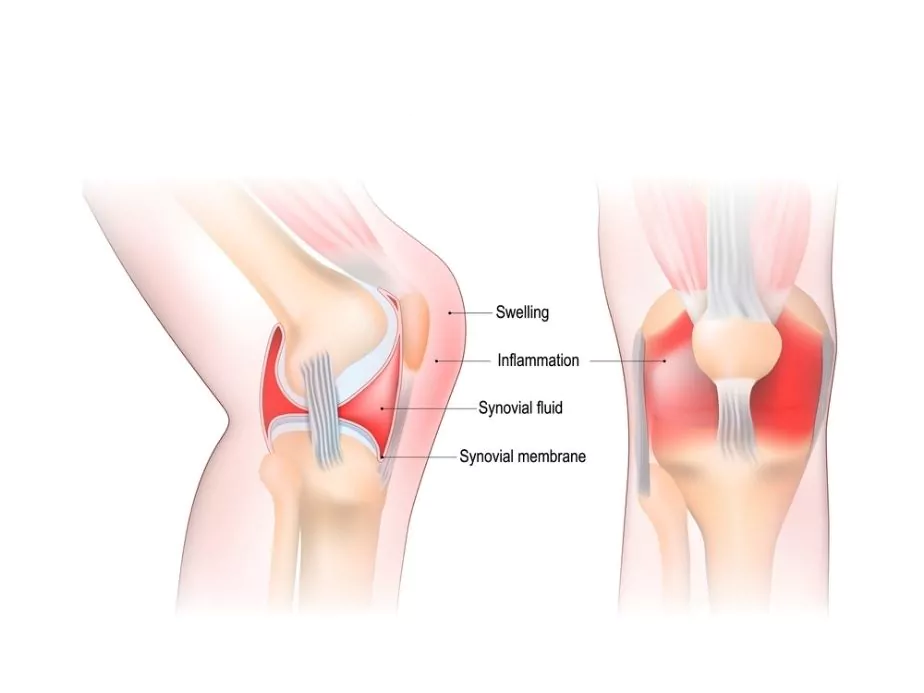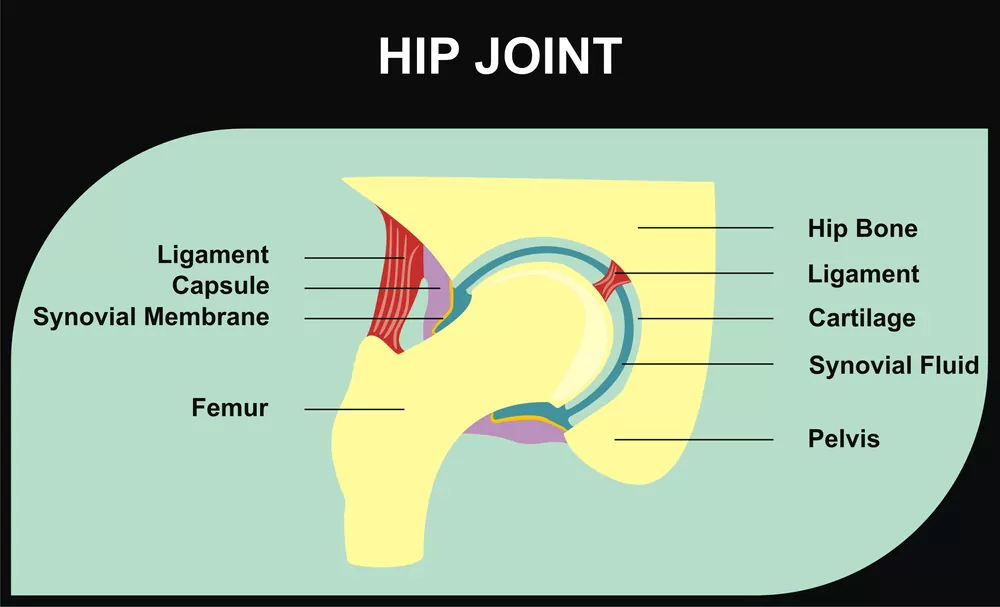9 Proven Tips on How to Increase Synovial Fluid

Joint pain, stiffness, and a reduced range of motion are common problems that many individuals face. One of the primary reasons for these issues is a decrease in synovial fluid, which is essential for joint health. In this blog, we’ll explore how to increase synovial fluid levels and improve joint health. We’ll discuss the role of the synovial membrane, the importance of hyaluronic acid, and various ways to enhance joint health, reduce joint stiffness, and decrease pain. We’ll also provide an overview of synovial membrane fluid analysis and the use of hyaluronic acid injections for affected joints.
1 Understanding Synovial Fluid and Its Role in Joint Pain and Joint Health
Synovial fluid is a thick, lubricating fluid produced by the synovial membrane, which lines the inner surfaces of synovial joints. Synovial joints, such as the knee joint, are the most common type of joint in the body, and they allow for smooth movement between the bones. The fluid serves as a lubricant, reducing friction between the cartilage surfaces of the bones and facilitating joint movement. It also provides nutrients and removes waste products from the cartilage surface, ensuring joint health.
As we age or experience joint conditions, such as osteoarthritis or arthritis, the synovial fluid levels may decrease, leading to joint pain, stiffness, and reduced mobility. Maintaining healthy synovial fluid levels is crucial for preventing these issues and keeping joints healthy.

2 How to Increase Synovial Fluid
Diet and Nutrition
A healthy diet is essential for maintaining joint health and increasing synovial fluid production. Consuming nutritious food rich in essential nutrients can help your body produce more synovial fluid. Some key elements of a joint-healthy diet include:
- Olive oil: Rich in healthy fats and anti-inflammatory properties, olive oil can help reduce inflammation and promote synovial fluid production.
- Fish oil: Contains omega-3 fatty acids that are known to reduce inflammation and support joint health.
- Leafy greens: Packed with vitamins, minerals, and antioxidants, leafy greens can help maintain joint health and reduce inflammation.
- Green tea: Contains polyphenols, which have anti-inflammatory and antioxidant properties, beneficial for joint health.
Physical Activity and Exercise
Regular exercise and physical activity are crucial for maintaining joint health and increasing synovial fluid levels. Exercise promotes blood circulation, which helps deliver essential nutrients to the joints and soft tissues. Some recommended exercises and physical activities for joint health include:
- Knee flexion heel: A simple exercise that helps increase synovial fluid in the knee joint by promoting blood circulation and joint lubrication.
- Tai Chi: An ancient Chinese practice that combines slow, flowing movements with deep breathing, improving joint flexibility and reducing pain.
- Strengthening exercises: Help build muscle and improve joint stability, reducing stress on the affected joint.
- Physical therapy: A healthcare provider can develop a customized exercise plan to improve joint health and increase synovial fluid levels.
Hyaluronic Acid Injections

Hyaluronic acid is a naturally occurring substance found in synovial fluid and cartilage. It helps maintain joint lubrication and reduces friction between synovial fluids and the cartilage surfaces. For individuals with severe joint pain and stiffness, healthcare providers may recommend hyaluronic acid injections to increase synovial fluid levels in the affected joint. These injections can provide temporary relief from pain and improve joint mobility.
Supplements and Alternative Therapies
Various supplements, foods, and alternative therapies can help support joint health and increase synovial fluid production. Some options include:
Chondroitin supplements: Chondroitin is a component of cartilage that helps the body produce more synovial fluid and maintain joint health. Studies have shown that chondroitin supplements may help reduce joint pain and stiffness.
Platelet-rich plasma (PRP) injections: PRP therapy involves injecting concentrated platelets from the patient’s blood into the affected synovial joint. These platelets contain growth factors that can help stimulate synovial fluid production and promote the healing of damaged tissues.
Glucosamine supplements: Glucosamine is a natural compound found in blood cells and cartilage that can help improve joint health and stimulate synovial fluid production. However, more research is needed to confirm its effectiveness.
Maintain a Healthy Weight
Excess body weight puts additional pressure on the joints, particularly the knees, hips, and spine. Maintaining a healthy weight can reduce this pressure and help maintain healthy synovial fluid levels. A combination of a balanced diet and regular exercise can help you achieve and maintain a healthy weight.
Stay Hydrated
Drinking enough water is essential for overall health and can contribute to maintaining optimal joint fluid synovial fluid levels. Staying hydrated helps to keep the joints lubricated and the synovial fluid at the right consistency.
Manage Inflammation
Chronic inflammation can damage joints and contribute to the breakdown of synovial fluid. Adopting an anti-inflammatory diet, including foods rich in omega-3 fatty acids, antioxidants, and essential nutrients, can help reduce inflammation and support joint health. In addition, avoid foods that can cause inflammation, such as processed foods, excessive sugar, and unhealthy fats.
Apply Ice Packs and Heat Therapy

Applying ice packs to the affected joint can help reduce inflammation and swelling. In contrast, heat therapy can help increase blood circulation, promoting the delivery of nutrients to the joint and soft tissue. Both methods of treatment can provide temporary relief from joint pain and stiffness.
Consult a Healthcare Provider
If you continue to experience pain, swelling, or other symptoms, consult your healthcare provider. They can perform a synovial fluid analysis to determine the underlying cause of your bone or joint problems and recommend appropriate treatment options, such as medications, physical therapy, or other interventions.
3 Wrapping Up
Joint health is essential for maintaining overall well-being and mobility. By adopting a healthy diet, engaging in regular exercise, managing inflammation, and seeking appropriate treatments, you can help increase synovial fluid levels and maintain healthy, pain-free joints. Remember to consult your healthcare provider before starting any new exercise or supplement regimen to ensure it is appropriate for your specific needs and health conditions.
Community Q&A
About This Article
This article has been viewed 657 times.



